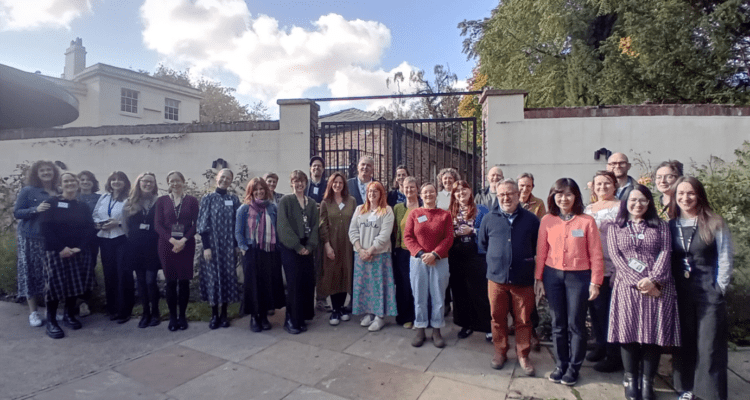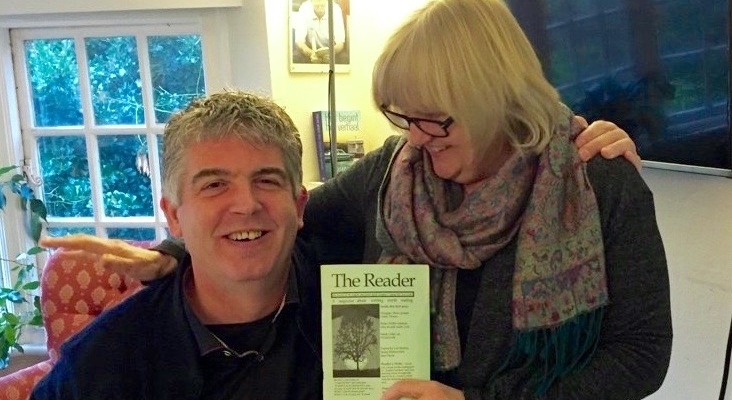Reading Azar Nafisi in Japan
Kimberley Long is a former volunteer at The Reader who is currently teaching English in Japan.
After making my way through the books I brought with me and the ones I’ve been lent since I got here, I finally got around to raiding the books that were left to me by my predecessor. I was intrigued by Reading Lolita in Tehran from the moment I saw it on my shelf, so homed straight in on that. It is one of those books that seem to follow me about. Past examples of ‘stalker’ books include Anna Karenina and Wuthering Heights. Reading Lolita in Tehran was the same. Whenever I went into bookshops it would be piled up on big tables by the door, along with whatever other titles the managers thought would grab the attention of the passers by. And time and again when I logged onto Amazon it would be listed under their recommendations to me. So when I turn up in Japan and it just happens to be on my shelf I knew the time had come.
I began the book by believing that I could empathise with what was happening. Focusing on the restrictions placed on women living under strict Islamic law I thought I could generalise the points made to how all women are suppressed in a patriarchal society. And from my personal point of view I had ideas of incorporating the obstacles I have faced in Japan, being a racial minority here and living in a very male-dominated society. The more I read however the more I realised that nothing I have ever experienced has ever come close to the boundaries these women are walled in by. After about sixty pages I felt physically exhausted. I had to engage all of my mental and physical capacities to change my outlook and get into the minds and souls of these other young women; literature students just like me. I had to stop several time mid page to pause and catch my breath as my head swam with questions and ideas.
In the course of my research into the book I found that it’s come up for criticism as essentially creating fuel for anti-Islamic sentiment in the West. While I can appreciate that to some it could appear that way from my perspective I felt it to be more balanced that expected. Azar Nafisi may well have chosen to leave Iran and live in America, but in her assembled all-female group of literature students there are women who cover the entire spectrum of feeling, from those who are willing to risk everything to escape, to those who are proud of their religion and the way of life it brings. It certainly left me with many more questions about this society about which I know so little.
The book was also interesting in that it is in part a book of literary criticism. Nafisi is, after all, an academic in English literature and among other things she has also written on Nabokov. In fact in places I wished I had read the book when I was studying Modern American fiction in my final year at university as some of the points she makes on Lolita and The Great Gatsby would have helped me immensely with my exams.
Perhaps it’s a symptom of my youth and naivety, but reading the book really opened my mind to a way of life and thinking that is so frequently painted as being oppressive and even inferior to Western culture. While I’m not sure I could go along with the way of life in Iran as Nafisi describes it, I now at least have some insight into why it is this way, and can sympathise with those who have left or who long to do so. Because given all the opportunities and freedom I have in my life empathy is truly out of the question. Sympathy is all I can offer.
By Kimberley Long
Share
Related Articles

Celebrating the first ever International Shared Reading Conference
‘It has been a wonderful day - great meeting you all! Loved the Shared reading and getting new knowledge. Inspiring…

Henrik Wig, Sweden: ‘In a world where democracy is in many ways threatened, Shared Reading can be a counterforce’
Literature teacher Henrik has been running Shared Reading groups across southern Sweden for six years with children’s groups and at…

Reader Revisited: An Interview with Het Lezerscollectief (The Readers’ Collective)
We're taking a trip down memory lane and revisiting articles from The Reader Magazine. This article first appeared in issue 73.…


